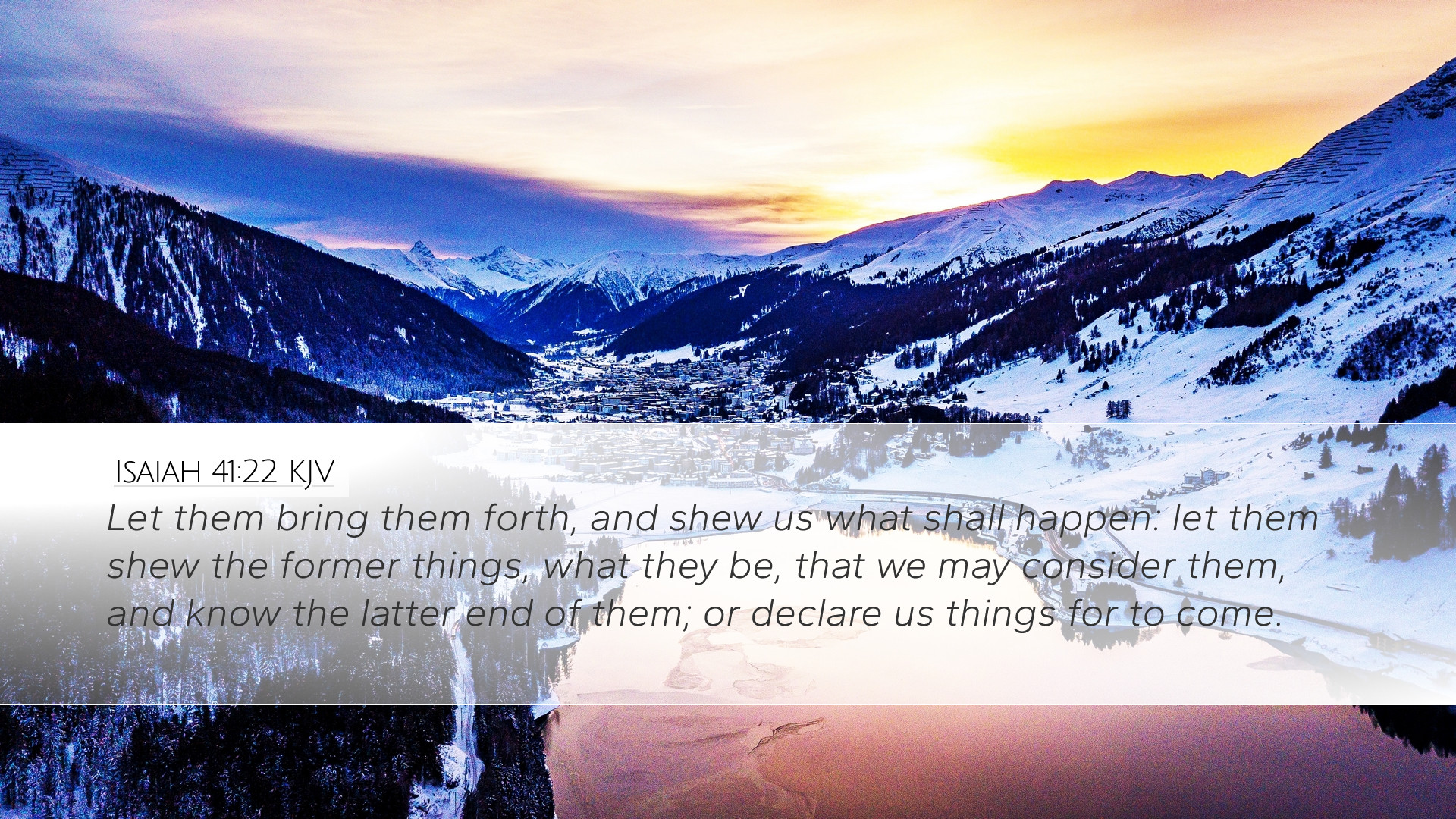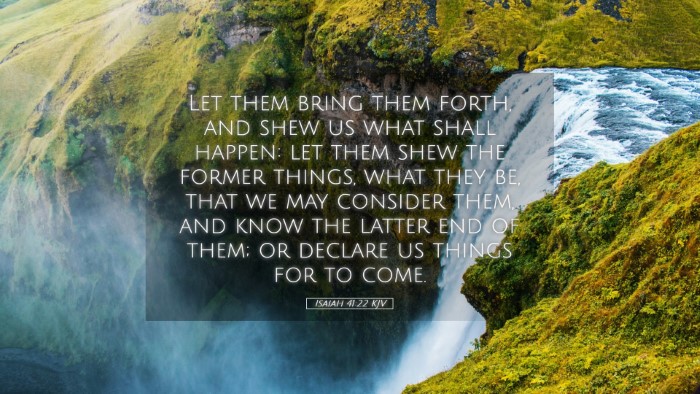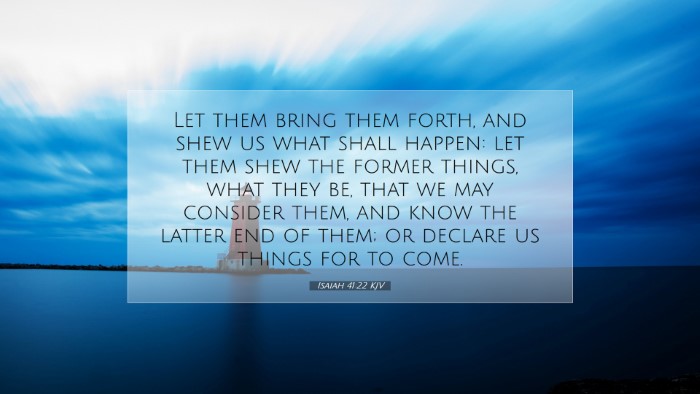Commentary on Isaiah 41:22
Bible Verse: “Let them bring forth, and show us what shall happen: let them show the former things, what they be, that we may consider them, and know the latter end of them; or declare us things for to come.” (Isaiah 41:22)
Introduction
The verse Isaiah 41:22 is part of a larger discourse in which the Lord contrasts His sovereignty and omniscience with the impotence of idols and false deities. This passage calls for a demonstration of power and foreknowledge from those who claim divinity, setting the stage for a profound consideration of God's unique attributes.
Contextual Overview
Isaiah 41 is a chapter rich with themes of comfort, challenge, and divine certainty. Amidst Israel’s doubts and fears, God speaks through the prophet Isaiah to assure His people of His presence and purpose. The challenge posed in verse 22 invites scrutiny of idols and the claims made by those who do not bear the stamp of divine authority.
Insights from Public Domain Commentaries
Matthew Henry's Commentary
Matthew Henry emphasizes the challenge to idols to demonstrate their power and knowledge. He notes that this verse serves as a rhetorical question to the idols, inviting a display of their abilities. The verse reveals that the Lord calls upon those who would claim authority over divination to “bring forth” their predictions. It serves as an indictment against the futility of trusting in false gods.
Henry asserts the importance of recognizing God's sovereignty and His unique ability to declare the end from the beginning (Isaiah 46:10). In light of God’s unmatched track record in history, any rival claims are shown to be baseless.
Albert Barnes' Notes
Albert Barnes expands on the implications of God calling forth the idols to demonstrate their power. He notes that the Lord’s question implies a challenge to their prophetic ability. Barnes highlights how this showcases God's omnipotence and the futility of false worship.
He explains that the verse is an invitation to observe the actual works of deities that cannot predict the future or reveal hidden mysteries, emphasizing the power and authority of the one true God. His points focus on the necessity for believers to put their faith not in the fleeting promises of the world but in the eternal assurances of God’s Word.
Adam Clarke's Commentary
Adam Clarke takes a more analytical approach to understanding this verse. He points out that the challenge in Isaiah 41:22 is directed toward the nations and their gods, urging them to produce evidence of their divinity through demonstration. Clarke succinctly notes the call for falsifiers of God’s truth to “show the former things,” which speaks to God's establishment of history.
He emphasizes the significance of “the latter end,” pointing out that God alone holds knowledge of future events. The insistence on showing evidence underscores the foundational biblical concept that God’s people can rely on His word as a touchstone for truth and prophecy. Clarke’s observations reunite the text with the larger narrative of God's plan for salvation and His role as the true and living God.
Theological Implications
Isaiah 41:22 lays a tremendous groundwork for theological discourse on the nature of God versus the nature of idols. The challenges laid out in the verse serve to manifest several core theological principles:
- The Sovereignty of God: The assertiveness with which God challenges the idols reflects His ultimate authority over creation.
- The Falseness of Idols: The impotence of idols to predict or influence outcomes showcases their nonexistence and the futility of trust placed in them.
- God’s Omniscience: By inviting the idols to demonstrate their power, God is affirming His unique capacity to foreknow and control events.
- The Call to Faith: This verse encourages believers to trust in God’s revealed word as the absolutely reliable source of truth.
Application and Reflection
The insights derived from Isaiah 41:22 can serve as a springboard for both individual and corporate reflection in the church context. Pastors and teachers can utilize this passage to challenge their congregations to critically examine the modern "idols" that compete for their loyalty and devotion.
Church leaders can foster discussions that explore the nature of true faith compared to the empty promises of contemporary culture. Biblical scholars may consider how God’s sovereignty is portrayed within the narrative of Isaiah's prophecies and how that informs present-day applications of faith in a complex world.
Conclusion
Isaiah 41:22 invites believers to engage in a rich understanding of God’s character as it relates to the futility of idolatry. The compilation of insights from Matthew Henry, Albert Barnes, and Adam Clarke showcases the depth of theological reflection available in this succinct verse. It affirms the call for faith in the one true God, emphasizing His power, knowledge, and unwavering commitment to His people.


